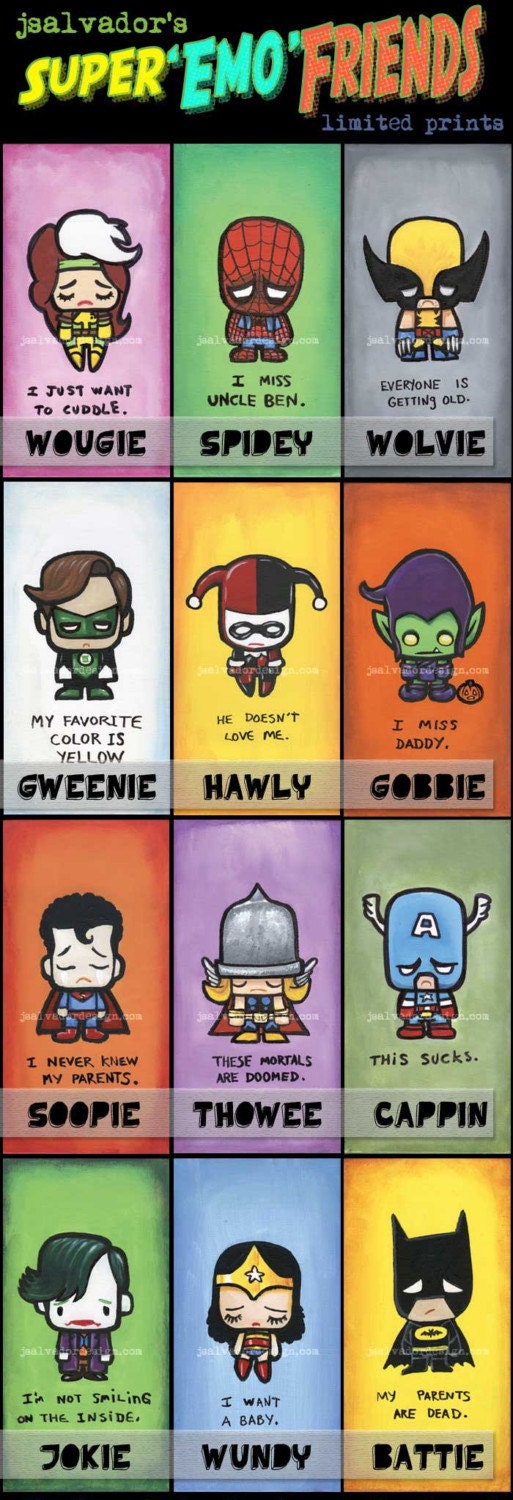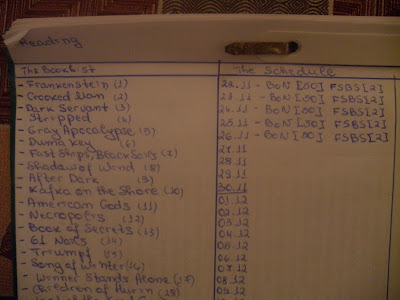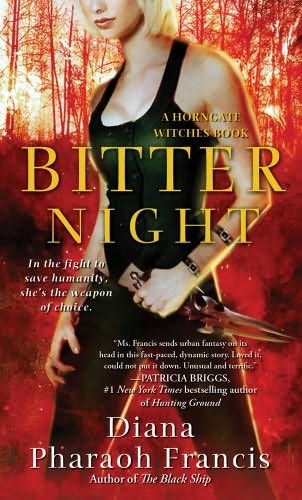
Sunday has arrived and while last week has been still in the feature department [Liz and Mark have been rather busy, but I am waiting on them for a special off-schedule post] I am back to the regular posting schedule with another dear blogger on my Google Reader list Mark Chitty, the mind behind “Walker of Worlds”.
What separated “Walker of Worlds” from most blogs is that it is solely sci-fi oriented rather than the mixed approach towards genre most review bloggers I read have, including my own blog, which doesn’t show a predisposition to a certain genre or format. It’s not because sci-fi is less covered, because as we all know sci-fi has been hitting television and the movie screen hard with Star Wars and Star Trek and Battlestar Gallactica and so much more and then there are the scandals and debates about connected with the genre. I am sure that there are several pure science fiction review blogs out in the great space that is the Internet, but so far Mark Chitty is the one of the few to stick only to one genre.
Apart from the genre difference everything else that builds a review blog as such applies with full force with “Walker of Worlds”. For starters he usually reviews books that I’ve no clue, thus enriches my reading list, although science fiction is not exactly my passion. I am more of a spell casting dude rather than a Storm Trooper, but when it comes down to a well written novel I am usually on board. As far as Marks’ reviews go I can’t complain at all and I think he does a respectable job in the field with entertaining and informative review and according length.
Apart from that Mark Chitty supplies his readers with news from around the block and in that regard allows posting to cross over into the fantasy scene or simply post some odd tid bits from around the Internet. Complete with the awesome blog name and interior to boot, I can say, although in a more compressed version, that “Walker of Worlds” should make an entry on your Google Reader list.
---
HM: Hey Mark, thanks for stopping by my little feature. Now can you tell us who you are, when you shut down the browser and are not running “Walker of Worlds”?
MC: My day to day life is pretty uninteresting, although I live in such a beautiful part of Wales with my ever-tolerant wife, Jane, and hyperactive cocker spaniel, Snoop. I wish I could say my job is exciting and thrilling, but it isn’t - I work for Bangor University in admin where I get the great enjoyment of dealing with students on a day to day basis.
Other than that I enjoy gaming, basketball, walking the dog and any endlessly searching for a form of relaxation that doesn’t involve me having constantly make my wife cups of tea. Oh, and reading :)
HM: The basic duo questions here are once more applied. What sparked your passion for reading and what brought you to science fiction?
MC: I’ve always enjoyed reading – I remember the craze while I was at school were all the Point Horror books, most of which I devoured. After that my reading was fairly sporadic until I picked up Pandora’s Star by Peter F Hamilton in 2004. That was the book that got me back into reading in a big way and since then I just can’t seem to get enough.
As for choosing science fiction over the more popular fantasy, I just enjoy it more. The idea of authors extrapolating technology and events and showing us what could actually happen in our future and what we could find out in the stars when we finally make it appeals to me in a big way.
HM: What’s the origin story behind “Walker of Worlds”?
MC: Basically, I wanted to share my thoughts on the books I read with others. Not only that, but while surfing the net and browsing many of the blogs I read at the time I found that nearly all of them were fantasy orientated, I just decided to start reviewing what I read to get more sci-fi out there.
HM: Science fiction has a variety of subgenres in the same manner fantasy varies, but since I am not as knowledgeable as to what is what, which is your favorite subgenre or theme in Sci- Fi that you always come back to as a form of comfort zone?
MC: There are so many sub-genres that I enjoy: military sf, near future, far future, techno-thrillers, detective stories, action sf – the list goes on and on. However, my favourite has to be space opera for no other reason than its sheer scope. It can also combines a lot of the sub genres into one story format and, when done right, allows the reader to see just how much science fiction has to offer.
HM: While we are at the genre topic I have recently read some futuristic novels, which can be considered science fiction with interplanetary battles, aliens and farfetched technology, but also incorporate tropes like vampires and more romance, which I haven’t yet seen as used in the genre. Can you call those sci-fi or just hybrids with sci-fi elements?
MC: I see them merely as science fiction, regardless of the tropes they contain. To me, as long as a fairly plausible explanation can be given as to why, for example, vampires are in a science fiction story then I see no reason to try and tag a novel in that way – it’s all speculative fiction at the end of the day!
HM: I am also on an organizational buzz and while I am figuring how to create a schedule to accommodate responsibilities and my interest, I want to know how other people cope with time deficiency. How do you find your reading time?
MC: With difficulty! I usually try and get a half hour or so reading time during my lunch break, but this is nowhere near consistent. My normal reading time is before bed at night, although I also have time here and there throughout the week that I grab when I can. However, if a book has really pulled me in I will quite happily suffer the wrath of the better half by spending every waking minute reading it.
HM: Let’s hit the nostalgia button and transport you back to the very first review you’ve ever written. What was the book that prompted you to review it and what drove you to take up review blogging in the first place?
MC: The first review I wrote was The Dreaming Void by Peter F Hamilton. After he got me hooked on reading again with Pandora’s Star I started up a fan site, www.theunisphere.com, that covers much of his work. It was because of this site that I managed to get hold of a review copy of The Dreaming Void – the rest, as they say, is history. I enjoyed taking the time to read a book and put my thoughts down and because of it I started up the blog to look at more sci-fi books I loved reading.
HM: What do you like best about reviewing and what is the worst aspect from being a review blogger?
MC: I enjoy the fact that as a blogger I tend to look more into the genre and what is going on than I did as a regular reader. Finding books that I wouldn’t normally have picked up is great, as is having the platform to share my thoughts on them. I don’t really see there being any negatives, although the feeling of guilt when the books are piling up, and because of this some inevitably don’t get read, is the closest it comes.
HM: What is the essential method for you to create a review? Do you finish it up all at once or do you write it in segments, how often do you revise, etc.?
MC: I used to write a review as soon as I finished a book, but these days I tend to give it a few days, perhaps even a week or two, to let my thoughts of the book fully form. When I do come to write it I usually spread it out over a few days and then go back to it so I can read it again before posting.
HM: Have you ever felt like abandoning it whole, because the world pressed you on reading and blogging time?
MC: Occasionally I have, but that’s more a reflection on being busy at home and work during certain times rather than wanting to stop blogging. I love doing it and whether I post something once a day or once a week I’ll always blog :)
HM: Is it important for you to finish every novel handed to you as a part of the review oath or do you have a trial period, after which you can drop a book, if it proves too boring?
MC: I do feel it’s important to try and read what I get through for review, but in reality it’s pretty much impossible. There is only a finite amount of time in the day and I do make the call to prioritise the books I want to read and talk about, but if I ever request a book or am asked specifically to review one I make sure I get around to them. Whether I finish a book or not is an entirely different thing – I won’t read something that is doing nothing for me, but equally I will give a book more than enough time before I decide to drop it unfinished.
HM: Mark, do you share the writer fever other bloggers have stated over the course of this feature?
MC: Yes and no. As much as I would love to sit down and write a story, I know that I don’t have the time or discipline to do so, at least at present. I respect anyone who writes for a living and I’m in awe of them, someone who sits down and churns out stories and novels has my respect. Plus if I started writing my reading and blogging time would vanish – I couldn’t do something as intensive as creating a story in half measures – and I love reading and blogging too much!
HM: As social networks grow, countless new sites that measure ranks pop up and more of us show at the blogging party have you officially entered the web hits war? I know there is one, even if it is silent, since we all want to be taken seriously and counted as reliable sources for information and critique and numbers prove that. Where do you stand on this subject matter?
MC: It’s great to see people visit my blog and when the numbers continue to grow it’s brilliant, but it’s not the be-all and end-all. I started blogging to share my thoughts and regardless of whether 10 people or 1,000 people visit my blog it won’t change why I’m blogging, but it does give me that happy feeling to see that people are actually reading my opinions.
HM: Publishing is evolving and changing. Conventional publication makes a few inches space for new forms to arise and one of them is self-publishing. Do you estimate that it will evolve into a reputable form with well regarded titles in the future and what is your opinion of it now?
MC: I’ve only ever read (or tried to read) a couple of self published books, one I put down because it wasn’t entirely my cup of tea and the other because the editing was terrible. Personally I think self-publishing is fine for factual books that have a small audience, but not very good for genre writers who can more often than not do themselves harm for putting a self published story out there. Will it ever get better? In all honesty, probably not.
HM: Speaking of changes in the industry, you must have heard about the Harlequin fiasco with the launch of their own vanity press and the strategy behind utilizing it to make profits. This has got to be a very interesting situation to watch unwind since so many organizations are rapidly reacting like RAW removing Harlequin from its list eligible publishers to the MWA and SFWA, who are taking similar actions. What do you feel about the whole situation?
MC: If a publisher can openly do this they should be shot, surely it can’t do anything but harm to both themselves and any writers that decide to go with them? Just because it’s backed by a publishing house doesn’t make it right or trustworthy – in fact it makes it more wrong.
HM: And as technology creeps in and the physical book is fought for dominance by the electronic copies, what do you think of the new e-book phenomenon?
MC: I like ebooks, but I’ll never change from paper books, at least not until the industry makes ebooks and the required hardware more affordable. I also like having books on my shelves so others can see what I like at a glance – ebooks don’t offer that.
HM: Also I have been drowning in genres that keeping sprouting everywhere and all definitions cause my brain to melt down. Truth is that to me the lines between genres are blurring into obscurity. Could this mean a possible post-genre future?
MC: As I mentioned earlier – it’s all speculative fiction at the end of the day. However, I can’t see the labeling of genres and sub-genres disappearing yet, there is too much reliance by marketing and publicity departments on putting a label on what they’re publishing. I think the readers are also guilty of this – they want to know what they’re picking up by a simple glance at a pre-defined genre label.
HM: Please finish with your own words.
MC: Just thanks for the having me :)







.png)
















